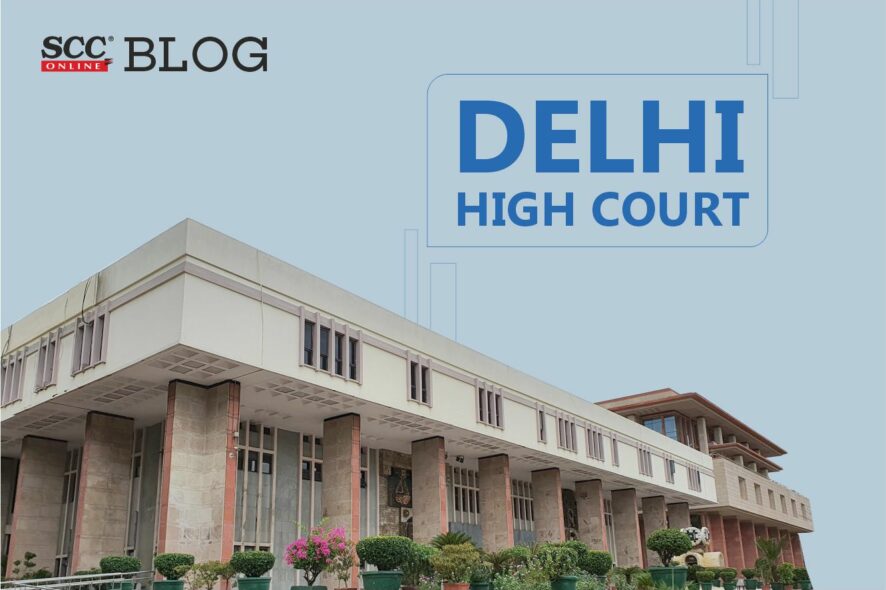Delhi High Court: In a case where a Nepalese citizen moved the bail application in relation to FIR registered under Official Secrets Act, 1983 (Act) and Penal Code, 1860 (Code), the Single Judge Bench of Anu Malhotra, J. denied bail to him holding that he was accused of passing on sensitive information to the Chinese Intelligence and in of the view of the gravity of the offence affecting the national security, there was no ground for grant of bail.
Background
In the present case, the applicant seeks the grant of bail in relation to FIR registered under Sections 3, 4 and 5 of the Official Secrets Act, 1983 (Act) and Section 120-B of the Penal Code, 1860 (IPC). The applicant submitted that he was falsely implicated and was uneducated, illiterate and a citizen of Nepal, who was residing in India for a substantial period and worked as a taxi driver and later joined a company for the position of an office peon-cum-driver, where his role was limited to the instructions given by the management of the company. Moreover, he stated that he was not aware of the business of the company and to his understanding the company was involved in the pharmaceutical sector.
Further, he submitted that in January 2020, the managers of the company went to China for personal reasons and thereafter departure from and to China was suspended during COVID-19 and thus, the managers handled the business from China itself. Thereafter, the applicant was behind bars since September 2020 in relation to a conspiracy and was arrested on the lead provided by the co-accused during the interrogation, but he was not named in the FIR. He submitted that one of the main accused was released and two of his co-accused were also granted bail and in the absence of legal aid he could not avail the default bail before filing of the charge sheet as he could not afford to hire any advocate for his defense.
In a report submitted by the State, it was stated that a secret input from the Intelligence Agency was received that the applicant’s co-accused had links with a Foreign Intelligence Officer and had been receiving funds through illegal means. During search of the house of the applicant’s co-accused, sensitive documents related to Indian Defense Department were recovered and it was revealed that he was indulging in procurement of sensitive documents and conveying the same to his handlers based in China and was receiving funds through shell companies being operated through the Chinese people in India.
During further investigation, the applicant was arrested, and it was revealed that the director of the company, in which the applicant was working, was a Chinese national. Moreover, it was revealed that the applicant was the co-director and was operating this company on behalf of the managers of the company, who were in China.
The State submitted that the co-accused of the applicant were granted bail as they had applied for it. The provision for grant of default bail became applicable only if the accused person fell within the parameters of Section 167(2)(a)(ii), that, within the category of a person ‘who is prepared to and does furnish bail’. But the applicant had not chosen to seek grant of bail under Section 167(2) CrPC.
Analysis, Law, and Decision
The Court noted that the applicant did not seek the grant of default bail and was not sought because the applicant was not legally represented. On this point, the Court relied on Kavita v. State (NCT of Delhi), Bail Appln. 3062 of 2021, wherein the facts were similar to the facts in the present case, and the Court therein found it essential to rely on Arvind Kumar Saxena v. State, 2018 SCC OnLine Del 7769, in which it was observed that “the Registrar General of this Court was requested to explore the possibility of creation of a database and software for the District Courts of Delhi for updation of the date in relation to the pending remand applications during the course of investigation pending before the Trial Courts with the dates of arrest and dates by when the requisite charge-sheet was to be filed in terms of Section 167(2) CrPC and the date when the said charge-sheet had been filed which would assist the learned Trial Courts in preservation of the rights of personal liberties of the accused appearing before them by informing the accused on coming to know that an accused person before them was entitled to the indefeasible right of default bail and may thus exercise the same if he / she was willing to furnish bail”.
Therefore, the Court held that the applicant was not entitled to the grant of default bail or bail even in terms of Section 439 CrPC had not been made by the applicant prior to the impugned order declining bail. The Court after considering the allegations levelled against the applicant that he was involved as a co-director of one of the Chinese companies through whom the information falling within the ambit of sensitive documents was being conveyed by the applicant’s co-accused to Chinese Intelligence Officers, held that, in view of the gravity of the offence affecting the national security of the country, there was no ground for grant of bail. Thus, the applicant was denied bail.
[Sher Singh v. State (NCT of Delhi), 2022 SCC OnLine Del 3745, decided on 14-11-2022]
Advocates who appeared in this case:
For the Petitioner(s): Advocate Venamra Mahaseth;
Advocate Bhaskar Tripathi;
Advocate Abhishek Singh;
For the Respondent(s): Additional Public Prosecutor Shoaib Haider.







